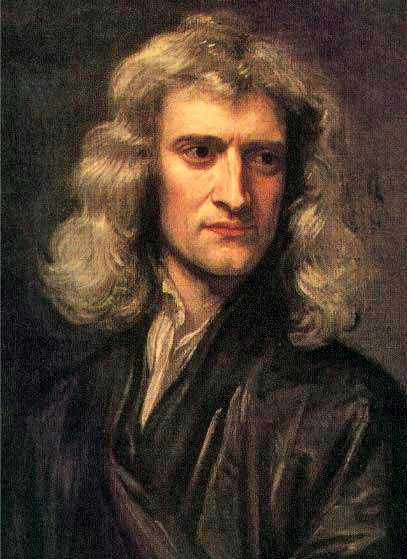On recognizing what one does and does not know:
“But hitherto I have not been able to discover the cause of those properties of gravity from phenomena, and I frame no hypotheses; for whatever is not deduced from the phenomena is to be called a hypothesis; and hypotheses, whether metaphysical or physical, whether of occult qualities or mechanical, have no place in experimental philosophy.”
Source: Principia Mathematica (1687), “General Scholium.” A nicely excerpted version is here at Susan Wise Bauer’s site.
Related:
“The Knife Man.”
“Anatomy and philosophy”.
“Who is the real father of modern philosophy?”

Newton was a strange fellow. On the one hand, he did more than almost anyone (Bacon excluded) to found modern science. On the other, he was a hard-core mystic.
I will say that I enjoy reading historical works on science, if only to see how words have changed. Newton’s use of “hypothesis” may have been in keeping with the standard during his lifetime, but it’s hardly the standard usage these days–a hypothesis IS deduced from observation (well, it’s supposed to be anyway). The term “fossil” provides another fascinating example. It was not uncommon, in Newton’s day and later, to speak of organic and inorganic fossils. “Fossil”, in fact, merely means “something dug up”. Inorganic fossils include things like rocks, minerals, and the like. Organic fossils include those things we consider fossils–remains of ancient life (not getting into the theories of that time; see de Vinci’s works on the subject to see some truly weird ideas!).
What’s sad is that history of science isn’t taught to scientists. And that means we repeat the same errors over and over again–because unless you happen to have a taste for old literature, you’ll never encounter any records demonstrating that the idea IS in error. This, I’m reasonably convinced, explains the tension between Dawkins and Gould back when Gould was alive–Dawkins focuses on modern works, while Gould took the time to learn about his field’s past.
Hmm… He could have used more philosophy in his life. He did pen one of my favorite quotes about the progress of knowledge.
“I do not know what I may appear to the world, but to myself I seem to have been only like a boy playing on the seashore, and diverting myself in now and then finding a smoother pebble or a prettier shell than ordinary, whilst the great ocean of truth lay all undiscovered before me.”